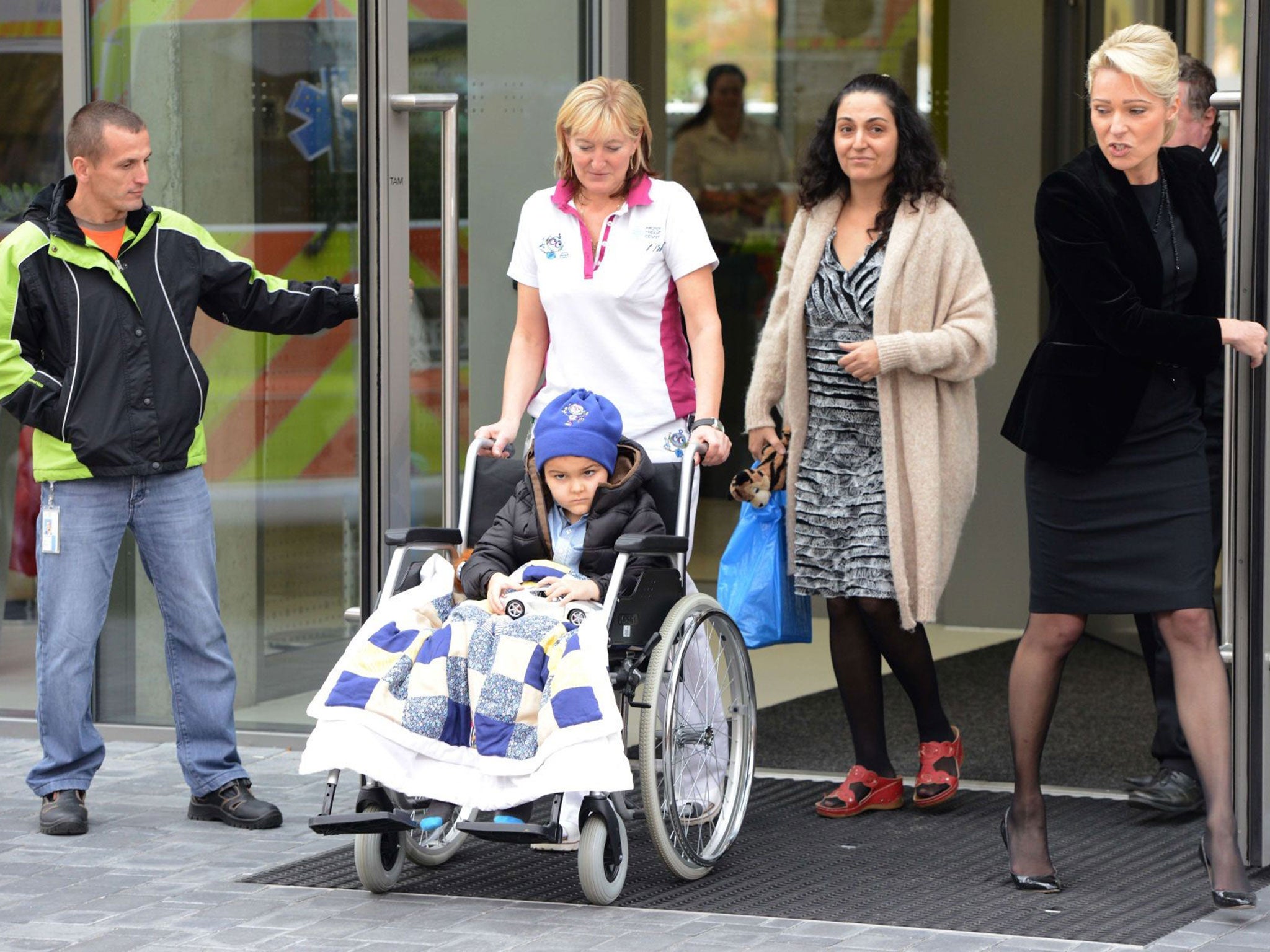Ashya King: Five-year-old boy free of cancer after family flees Britain for proton therapy
Proton therapy saved Ashya's life after 30 sessions, his parents claim

Your support helps us to tell the story
From reproductive rights to climate change to Big Tech, The Independent is on the ground when the story is developing. Whether it's investigating the financials of Elon Musk's pro-Trump PAC or producing our latest documentary, 'The A Word', which shines a light on the American women fighting for reproductive rights, we know how important it is to parse out the facts from the messaging.
At such a critical moment in US history, we need reporters on the ground. Your donation allows us to keep sending journalists to speak to both sides of the story.
The Independent is trusted by Americans across the entire political spectrum. And unlike many other quality news outlets, we choose not to lock Americans out of our reporting and analysis with paywalls. We believe quality journalism should be available to everyone, paid for by those who can afford it.
Your support makes all the difference.Ashya King – who was at the centre of an international manhunt after his parents removed him from a UK hospital without consent – has been given the all clear from cancer.
His life was saved in a “miracle” recovery because he was given treatment in the Czech Republic that was not available for him in Britain on the NHS, his parents have claimed.
His mother Naghmeh, who alongside her husband Brett took five-year-old Ashya away from a Southampton hospital last summer, described the news as incredible.
“If we had left Ashya with the NHS in Britain, he would not be with us today. He was too weak and would not have survived,” Naghmeh told The Sun.
The boy was finally allowed to undergo a 30-session treatment at the Proton Therapy Centre (PTC) in Prague for brain cancer after a long legal battle fought by his parents.
His father said his son’s condition now justifies their actions in taking him, from Southampton General Hospital last August, to Spain where they have a holiday home.
He said: “We have saved his life”. They would do the same thing again if they felt they had to, he added, after they were arrested in Spain and spent several nights in prison.
A High Court judge approved the move to take Ashya to Prague for proton therapy, which the PTC said is more effective than the radiotherapy that he was being offered on the NHS to treat the medulloblastoma.

PTC limits the collateral damage of radiation to other vital organs. This would lead to less severe long-term side-effects including heart and breathing problems.
The therapy was not available for him on the NHS, although the health service later agreed to fund Ashya’s treatment.
The NHS is building two proton beam centres, one in London and one in Manchester, which are expected to open in 2018, and funds the treatment abroad in some cases.
The family, who have previously spoken of their apprehension over returning to the UK for fear social services would get involved, are staying in Marbella where Ashya will continue his recovery.
The Sun quoted a report from the PTC which stated that the oncology department “could speculate that Proton Therapy received could be sufficient to sterilise sites of possible future relapses of the tumour and chemotherapy could deteriorate the quality of life of Ashya”.
Join our commenting forum
Join thought-provoking conversations, follow other Independent readers and see their replies
Comments